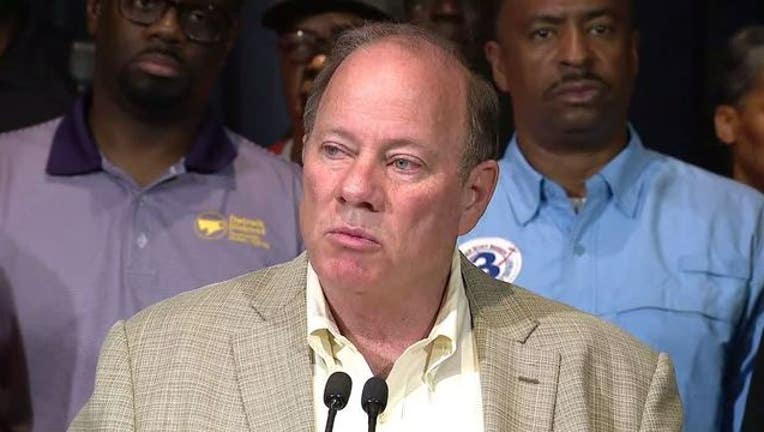Detroit Mayor Duggan says police won't use facial recognition for surveillance

DETROIT (FOX 2) - For the past month or so, Detroit Police have openly debated the possibility of using facial recognition to help fight crimes. That naturally has sparked concern that police would be using the technology to monitor all of our movement. Now, Mayor Mike Duggan has said he opposes the use of facial recognition technology for surveillance.
In a statement addressed to Detroit residents posted to the city's website, Mayor Duggan said he strongly opposes "the use of facial recognition technology for surveillance."
Duggan said that the Detroit Police Department is not permitted to use such software for surveillance, and he would "never support them doing so".
He said the technology is not reliable above to identify people from moving images and "research has shown it is even less reliable in identifying people of color."
In the past month or so, growing concerns over the use of the technology has led to outbursts at meetings, including last Thursday when a Detroit Police Board Commissioner was arrested after bringing up the topic. Willie Burton was arrested for being out of order after he and attendees were warned to remain civil.
Duggan said he's spoke with members of the Detroit Police Commission and has encouraged them to adopt a 'no surveillance' policy and to provide serious discipline for any DPD employee who violates the policy.
In his letter, Duggan said the systems will not be used on Project Green Light cameras, which he says have been extreme successful in stopping crimes including carjackings. Year to date, there have been 94 carjackings, compared to 222 over the same time period in 2015, Duggan said, a drop of 58%.
The city approved the purchase of facial recognition software back in 2017 by a 6-0 vote. For the past two years, it's been used to identify dangerous offenders but will not be used for surveillance, Duggan said.
he described how the system is currently being used and says Detroit police get a picture of an offender while committing a crime. That could be from a doorbell camera, Green Light Camera, or private security camera.
He said detectives then take that picture and try to identify the offender by running the picture through the software.
Duggan offered an example when it worked for the city. On November 25, a 34-year-old man was shot at a Detroit gas station. Using a clear picture of the suspect obtained on the gas station's surveillance video, the software was able to match up that picture with one in a police mug book.
That led detectives to a picture on social media that he had posted, where he was wearing the same distinctive jacket worn during the shooting, Duggan said.
"If your loved one was shot and there is a picture of the shooter, wouldn't you expect the police to use every tool they can to identify that offender? Police never make an arrest just because there is a facial recognition match. But it is an important source of leads detectives can use to find the identity of the offender. I fully support the technology's use for that limited purpose."
Duggan ended his letter by saying the city is not using the software for surveillance, and he will not support it ever being used in that manner.

